Complex diagram of Genital Herpes treatment (information for specialists)All the information contained on this informational resource is intended exclusively for practitioners and cannot be used by the site visitors for self-diagnosing and prescribing treatment without a previous consultation with the doctor.
The advantages of complex treatment of viral infections:
The principles of stepped treatment and prevention of recurrent herpesvirus infections (V. A. Isakov, D. K. Ermolenko, 1991; 1996) Stage ITreatment in the acute phase of the disease (recurrence).
Stage IITreatment in remission, after decrease of the main clinical signs (early recovery, 8-15 days of recurrence). The main purpose is the preparation of the patient for vaccine therapy.
Stage IIISpecific relapse prevention of HVI (herpes virus infection) with the use of herpes vaccine (inactivated, recombinant, 2-3 months after relapse). The goal of vaccination is the activation of cellular immunity, its immunotherapy special desensitization of the body.. This stage comes after achieving the stable clinical and immunological remission (if it is cleared to be possible). A good effect has been obtained at using the inactivated vaccine "Vitagerpavak" (Moscow) in combination with cycloferon. Stage IVClinical monitoring and rehabilitation of patients with herpesvirus infections. An active assessment with clinical and laboratory monitoring, rehabilitation of long-lasting focuses of infection, immunorehabilitation. Symptomatic (pathogenetic) therapy, based on the patient's condition (systemic enzymeotherapy, probiotics, immunomodulators, etc.). Re-use of vaccines to prevent relapse of HVI (herpes virus infection). The use of immunomodulators. Until recently in the West, an important part of the complex treatment of relapsed HVI was exclusively acyclovir (and its derivatives). However, not so long ago the Western colleagues have confessed the limitation of using antiviral monotherapy in the patients treatment with HVI and offer the immunomodulators as a potentially new method for the treatment of genital herpes (Leung D. T. et al., 2000; Marques, A. R. et al., 2000; Miller R. L. et al., 2002). This is another confirmation of our strategic direction correctness on complex patients' treatment with relapsing HVI (including genital herpes) with drugs containing the antiviral, immunomodulirutee and antioxidant activities (V. A. Isakov and others, 1989; 1991; L. N. Khakhalin and others, 1997). Separating in some cases resistance ones (including the initially resistant) to AC of HSV (herpes simplex virus) is a serious problem in the treatment of a specific patient and can directly affect the course and outcome of the disease. This makes develop actively the methods of complex treatment for RGH (recurrent genital herpes) using antivirus HTA (chemotherapeutic agents) in combination with IFN and its inducers. A wide range of physiological functions of interferons (antiviral, radioprotective, antiproliferative and immunomodulating) indicates their controlling and regulatory part in maintaining homeostasis. It is shown that IFN causes the increase of cellular immunity, resulting in stimulation of phagocytosis, increase of EC cytotoxicity, activation of immune lymphocytes cytotoxicity, increase of cellular antigens expression. There are indications on the influence of various doses of IFN as a system of cAMp and the state of the cell membranes of lymphocytes. The combined use of AC in vitro with IFN or its inducers gave potentionaly and sinergistic effect against HSV-1, HSV-2 and Herpes zoster virus. The ointments and creams with interferone for topical treatment of skin and mucous membranes as monotherapy or in combination with systemic application of IFN and antiviral agents are widely used. Pathogenetically justified is the prescription of systemic enzymeotherapy (SET) drugs for RGH patients, for example, trypsin, vobenzim, Phlogenzym, which are the analogous to natural factors antiviral defense. The course duration is 5-10 days. In most cases, there is a persistent clinical effect. It is recommended to include drugs with antioxidant activity in the therapy of patients with RHI (recurrent herpes infection), that allows to restore partially the ability of blood cells to the synthesis of a - and g-IFN. The patients take natural antioxidants (E and C vitamins) according to the diagram, the course is 7-10 days. In the case of expressed exudative component the assignment of prostaglandin inhibitors (indomethacin, etc.) is indicated for 7-10 days. It is believed, that recurrent forms of herpes occur in 2-6% of population, genital herpes - 0.5-2.0%, and in developed countries - up to 6-10% of the adult population. Patients with oncological pathology of the HVI (herpes virus infection) are found in 50%, and with HIV infection - in 60-100% of cases. Thus, HI is a serious problem for patients with immunodeficient conditions. With the aim of preventing recurrence of HVI (herpes virus infection), including genital herpes, in the phase of clinical and immunological remission an antiherpetic inactivated dry cultural vaccine with moderate efficiency or a liquid inactivated vaccine can be used. It should be noted that this stage (vaccination stage) often occurs not earlier than 3 weeks-2 months after the acute phase of GH (genital herpes), at clinical and immunological remission of the disease. The main course includes 2 cycles with 10 day breaks in between. It is necessary to have refresher courses of vaccination in 3-6-12 months for persistent preventive effect (I. F. Barinsky and others,1986). There are other diagrams of vaccines administration. It is known that the immunodeficiency may keep long at RGH patients in remission, the level of interferon remains low, production of IFN is reduced by leukocytes. In this regard, it is recommended to carry out the specific vaccinations in addition to using IFN drugs and its inducers (V. A. Isakov, D. K. Ermolenko, 1994). Thus, the strategic direction for an integrated way in treatment of VI (viral infection) patients, especially with long-lasting and recurrent course, is appropriate and justified. The use of combinations of AVD (antivirals drugs) with different chemical structure and fundamentally different mechanism of action, can lead to increase the antiviral effect of additive or sinergistic character. It allows to reduce the toxic effect of the main drug due to right antiviral action of combinations with lower concentrations in comparison with using each compound separately. Though this approach is time-consuming, but it seems to be the only correct and potential, because it allows to offer effective solutions and regimens of VI and also a new group of drugs based on targeted, but not an empirical screening (F. I. Ershov, 2006; V. A. Isakov and others, 2005; L. N. Khakhalin, 2001). Read more:
Ask your gynecologist if he (she) has an experience in treatment of human papillomavirus infection to the complete removal of human papilloma virus from the body? |
|
| Homepage | Feedback | Site Map | Job Vacancies | Contacts
© 2004—2020 Brand-Pharm Ltd. All information contained on this website is intended only for medical specialists and cannot be used by visitors for self-diagnosis and treatment. Consult your physician, do not start self-medication!
The website creation and promotion: Alisa Design |
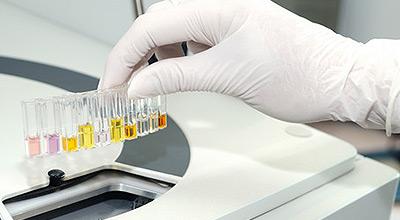
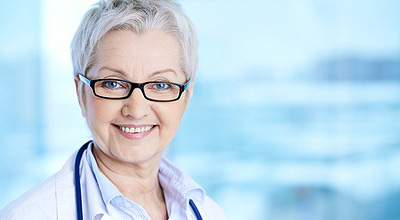


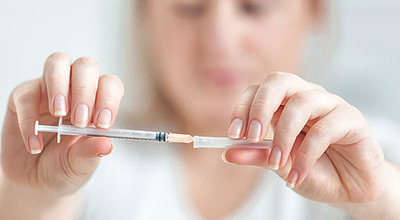
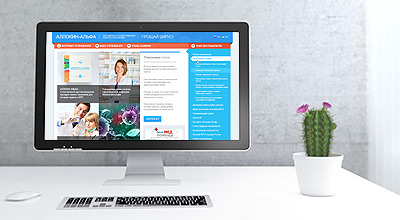
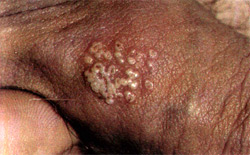 The combined use of AVD (antiviral drugs) with different chemical structure and fundamentally different mechanism of action, leads to increased antiviral effect of additive or sinergistic nature. It also helps to reduce the toxic effects of the main drug due to proper antiviral action of combinations with lower concentrations in comparison with using each compound separately. In addition, the combined use of AVD with different mechanism of action (HP with interferon, inductors of interferons, immunomodulators, antioxidants, systemic enzymotherapy, vaccine) reduces or prevents the possibility of inhibitorresistant mutant viruses.
The combined use of AVD (antiviral drugs) with different chemical structure and fundamentally different mechanism of action, leads to increased antiviral effect of additive or sinergistic nature. It also helps to reduce the toxic effects of the main drug due to proper antiviral action of combinations with lower concentrations in comparison with using each compound separately. In addition, the combined use of AVD with different mechanism of action (HP with interferon, inductors of interferons, immunomodulators, antioxidants, systemic enzymotherapy, vaccine) reduces or prevents the possibility of inhibitorresistant mutant viruses.